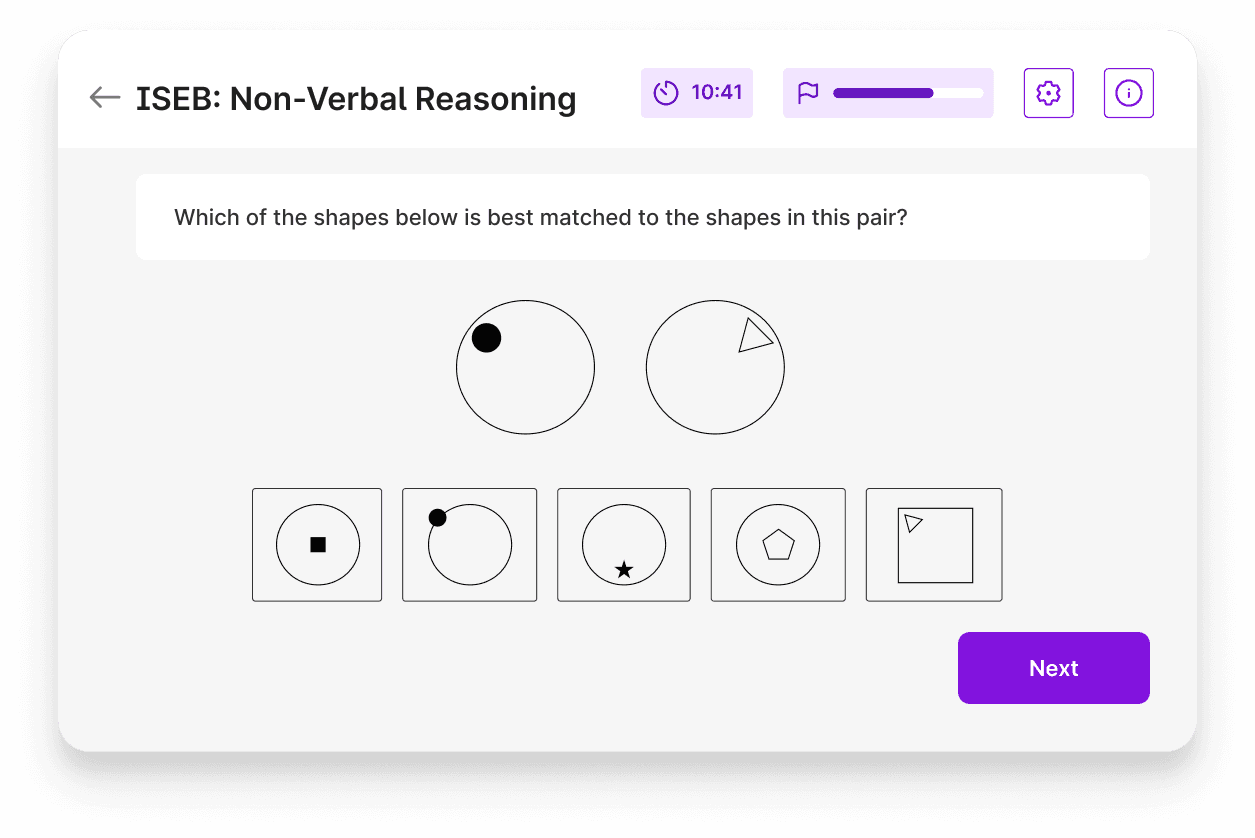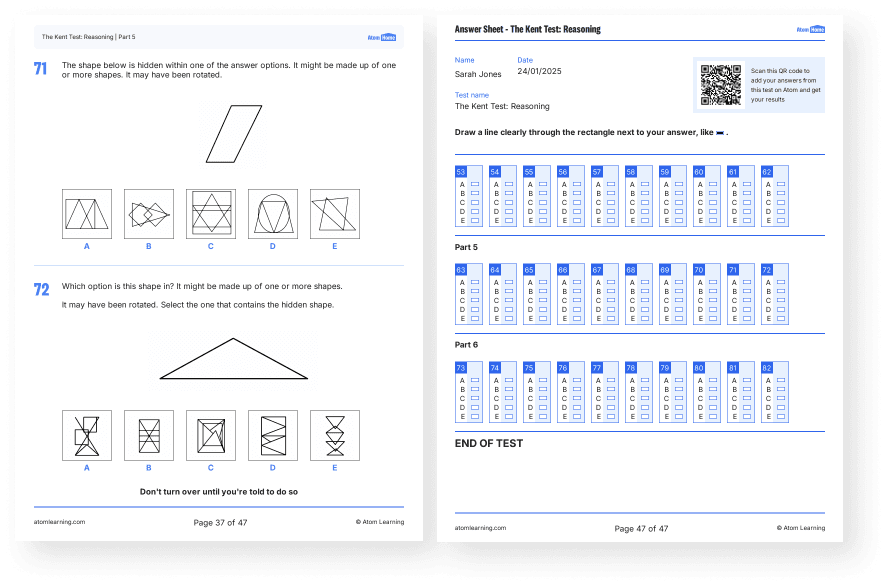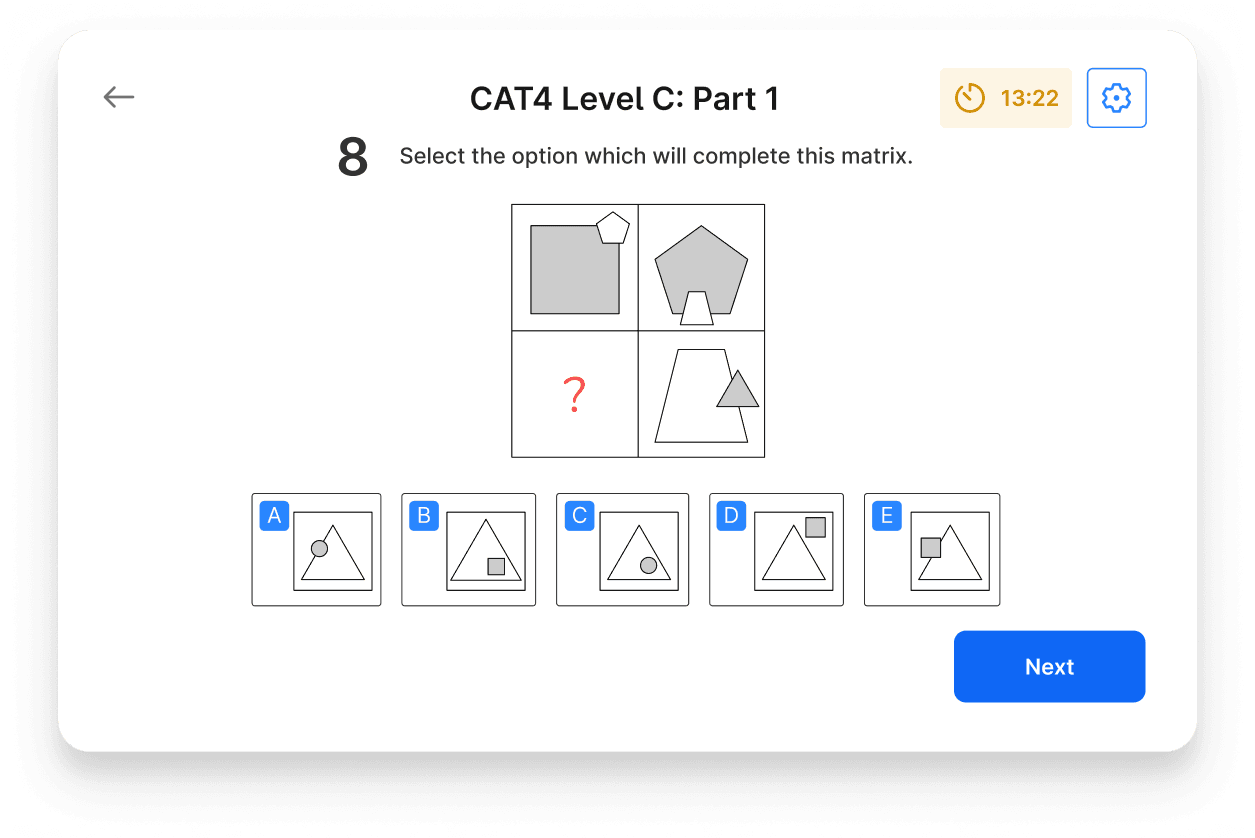Contents
Are you thinking about moving to the UK for your child's education? Or considering sending your child overseas to attend a UK boarding school? Our guide is here to help.
The first part gave an overview of the UK school system and how to choose a school. In part two, we'll cover what to expect when applying to British schools, and how to help your child prepare for entrance exams.
School entry points
Children can join a school at any age and time of the school year (if a place is available, and if the child meets the school's requirements). The most common entry points to British state schools are September at age 4 (primary school), age 11 (secondary school), and age 16 (sixth form).
Independent schools are more varied. The main entry points are September at age 7 (prep school), 11 or 13 (senior school) and 16 (sixth form). Entrance exams usually take place the year before joining.
Application process
Independent (private) schools
If you would like your child to go to an independent school, the application deadline is usually about one year before your child is due to start school. Most schools offer year-round admissions, so if you apply after the deadline your child may be able to join mid-year if the school is not full.
However, this depends on how competitive the school is. At some elite private senior schools the application deadline is up to three years before entry. Applying as far in advance as possible will increase your child's chances of getting a place.
Application processes and deadlines can vary considerably, so always check each school's website. Here is what the average process looks like:
Research and shortlist schools.
Start looking at visa arrangements.
Start enquiring with schools (spring/early summer). When you register with a school, they might ask for a copy of your child's current school report and assessment results.
If the school thinks that your child will be a good fit, they will ask you to submit an application form. You might also be able to apply for scholarships at this stage.
If the school is academically-selective, your child will need to take entrance exams. These usually take place between October and January. If you live overseas, your child may be able to take the exam at a test centre in your own country.
You will find out if your child has been offered a place some time after the exams. If your child is successful, you can start further preparations, like arranging guardianship and finalising visas.
Entrance exam preparation
Everything you need to prepare for entrance exams, in one package. 91% of children who use Atom to prepare get into their first choice senior school!
State schools
If you're applying for your child to join a state school, you will need to apply for a place before 31st October the year before entry. Most non-selective schools offer year-round admissions, so if you apply after the deadline your child may be able to join mid-year (unless the school is full).
For selective state schools (grammar schools), you will also need to register your child to take the school's 11 plus exam. Registration deadlines for grammar schools vary from spring to early September in the year before entry.
Here's the standard process for applying to state schools:
Research and shortlist schools. The local council website of where you will be living will have information about the schools in the area and their application processes. Most local councils will allow you to list 3–6 schools on your child’s application in order of preference. You should have at least one alternative in mind in case your child does not get a place at their first-choice school.
Spring–summer: register for 11+ exams (selective schools only). Your local council website will have information on how to do this. You will need to register with the school or with the local consortium.
September: your child takes the 11+ exam (selective schools only).
Mid-October: receive 11+ results (selective schools only).
31st October: submit local authority application form. You must submit an official application on your local council’s website, with your list of preferred schools in order. Only include grammar schools on the list if your child passed the 11+.
March: National Offer Day. You will get an offer of a school place. The offer will be for your highest-ranked school that is able to offer your child a place. If none of your preferred schools can offer your child a place, they will be offered a place at the nearest school to your home with space available.

Other considerations
Home address
UK schools do not require you to currently live in the country before applying. Your school application should not be refused on the basis that you live abroad. However, it is common for schools to give priority to children who live nearby. For example, many state schools – including grammar schools – have catchment areas, where the distance from home to school is a deciding factor in whether to offer a child a place.
You might be asked for an address or proof of where your family will be living. If you don’t have a permanent UK home address at the point of applying, your application will still be processed, but children who have proof of address close to the school may be given priority.
Boarding school guardianship
If you would like to send your child to a UK boarding school while you live overseas, your child must have a guardian living in the UK. This is a requirement of most boarding schools. The guardian is there to help your child on your behalf in case of an emergency. They may also help your child with transport, such as meeting them at the airport, and your child can stay with them during school breaks if they are not returning home.
Your child’s guardian can be a family friend or relative, and it is always best to choose someone who lives near the school. There are accredited organisations that you can pay to act as a guardian for your child. As well as offering transportation and emergency support, some of these programmes can match your child with a host family to stay with during school holidays.
Admissions consultancy
Admissions consultancies or agencies offer a bespoke service to help with independent school applications. They assess children’s strengths and preferences and advise families on which schools would suit their child. Popular consultancies include Bonas MacFarlane and William Clarence, who have placed students at some of the UK’s most prestigious schools.
Although admissions consultants are a convenient way to navigate the admissions process from overseas, you don’t need to work with one. Plenty of private schools offer this type of support directly, particularly if they have a large cohort of international students. If your child goes to an international prep school, they will offer support with applications and transitions.
UK school visa requirements
State schools
To enter the UK to attend a state school, foreign national children who live outside the UK will need either:
An immigration status which permits them to enter the UK to attend school
Before you apply for a state school place, make sure that your child has a right to study at a UK school under their UK entry conditions. State schools will not ask for proof of immigration status before offering a place – in fact, they are not allowed to do this. You must check your child’s eligibility yourself.
Irish citizens can access a state school place in the UK without needing permission. Citizens of the European Economic Area (EEA) and Switzerland who are already living in the UK can continue to attend a state school.
There are several other circumstances in which children can enter the UK to attend a state school, including:
Children of a BNO (British National Overseas) visa holder from Hong Kong
Children of foreign nationals who have settled status
Children who have been recognised as refugees and asylum seekers
Independent schools
If you would like your child to attend an independent school in the UK, you should look for a school that is a licensed student sponsor. These schools can sponsor international students to study in the UK. You should apply to these schools directly. If the school accepts your application, you will be sent a CAS reference number (Confirmation of Acceptance for Studies).
You can then use your CAS number to apply for a Child Student visa. If you are already in the UK, you can apply to extend the visa or switch to a Child Student visa. Children on a Child Student visa are not allowed to attend a state school.
Entrance assessments
If your child is applying to a selective school, whether it’s a state grammar or private school, they will need to take entrance exams. Private schools will usually interview your child after they take exams. Some schools even interview you as parents.
Most selective secondary schools in the UK use one or more of the following entrance exams. Some schools also create their own bespoke tests.
11+ (11 plus)
The 11+ is an entrance exam used by schools to select children for places in Year 7 (aged 11). The 11+ is a compulsory exam for grammar schools.
Some independent schools refer to their entrance exams as 11 plus exams, but the process can be different.
Pictured above: an practice 11 plus paper for grammar schools in Kent, downloaded from Atom Home
13+ (13 plus)
The 13+ is an entrance exam used by independent schools to select children for places in Year 9 (aged 13). Children who take the 13+ exam might have gone to a prep school until the age of 12. Some senior schools only take children from age 13 onwards, so the 13+ is a compulsory exam for entry to these schools.
CAT4
The CAT4 exam is a cognitive abilities test provided by GL Assessment. This is an online test which takes around one hour to complete. It tests skills in verbal and non-verbal reasoning, quantitative reasoning, and spatial reasoning.
Some independent schools use the CAT4 exam as an entrance exam. It's also used by many state secondary schools to 'stream' students into sets when they start in Year 7.
Pictured above: a non-verbal reasoning question on a CAT4 mock test on Atom Home
Common Entrance
The Common Entrance is a type of 13+ entrance exam used by some independent schools. The exam is provided by the Independent Schools Examination Board (ISEB).
Common Pre-Test
The Common Pre-Test is an entrance exam created by the Independent Schools Examination Board (ISEB). It's used by some independent schools for 11+ or 13+ entry.
The exam is taken online and is multiple-choice. The questions are adaptive, which means they get easier – or more difficult – depending on how the child is performing. This test assesses English, maths, verbal reasoning, and non-verbal reasoning.

Pictured above: a question on an ISEB Common Pre-Test non-verbal reasoning mock test on Atom Home
GL Assessment
GL Assessment is the main provider of grammar school 11+ exams. These tests are taken on paper and consist of multiple-choice questions. It's up to schools or groups of schools to decide which subjects to test, but they all select from English, maths, verbal reasoning and non-verbal reasoning.
Quest Admissions
Quest Admissions is an online entrance exam used by a growing number of independent schools. It's up to schools to choose which elements of the exam to test. Part 1 typically assesses English, maths, verbal reasoning and non-verbal reasoning. Part 2 involves unique components called creative comprehension and puzzles and problem-solving.
UKiset
The UKiset is an entrance assessment designed for overseas students. It's taken online and is adaptive, so the questions become easier or more challenging depending on the child's individual performance.
The UKiset tests maths, vocabulary, non-verbal reasoning, and English skills such as reading and listening, creative writing, spelling and grammar.
Contents


